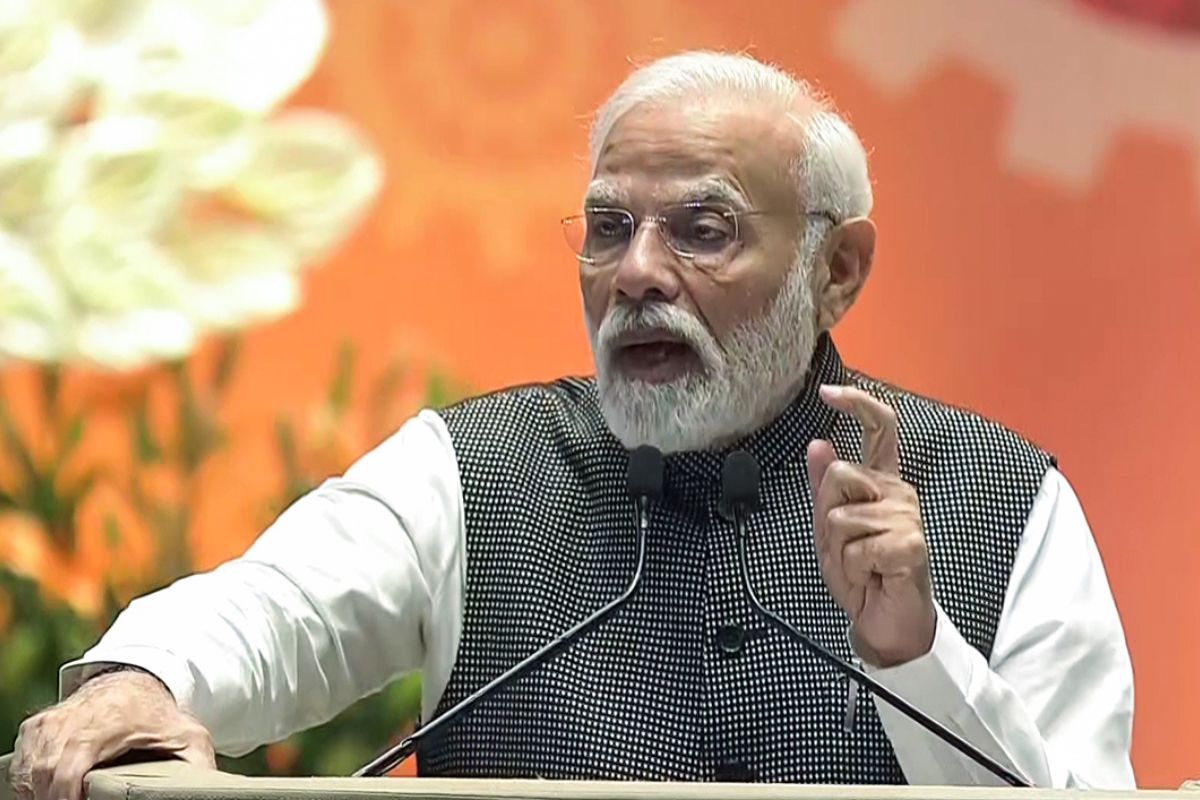Prime Minister Narendra Modi on Friday said the government’s investor-friendly policies have taken India’s food sector to new heights with the processed food industry receiving Rs 50,000 crore FDI in the last nine years and a similar amount has been invested in post-harvest infrastructure.
He was speaking after inaugurating the second edition of the mega food event ‘World Food India 2023’ at Bharat Mandapam here. The three-day event aims to showcase India as the “food basket of the world” and celebrate 2023 as the International Year of Millets.
Advertisement
Disbursing seed capital assistance for over 1 lakh self help groups (SHG) members, the prime minister said the high levels of investments in the food sector were the results of the government’s pro-farmer and pro-industry policies.
“We have started a PLI (productivity-linked incentive) for the food processing sector. Under this, industry and new players are getting special assistance,” he said. Investment of thousands of crores of rupees is being encouraged in processing-infrastructure for fisheries and animal husbandry, he said.
In the last nine years, Modi said the share of processed foods in agri exports has increased from 13 per cent to 23 per cent. The processed foods exports rise was 150 per cent during the period.
India is globally at number 7 by making over 50,000 million USD agro exports, he said. There is no food processing industry sector which has not made unprecedented progress. This is a golden opportunity for every company and start-up associated with the country’s food sector, he said.
Behind this speedy and rapid growth, there has been consistent and dedicated labour, he said, adding that India got its first ever agri-export policy during his government’s tenure, along with a network of nationwide logistics and infrastructure.
More than 100 district-level hubs, connecting districts to global markets have been set up. The number of mega food parks has increased from two to more than 20. India’s food processing capacity has also risen from 12 lakh metric tonnes to more than 200 lakh metric tonnes, which is more than 15 times increase in the last nine years, he said.
For the first time, he said, new agriculture produce is being exported, including black garlic from Himachal Pradesh, dragon fruit ‘kamalam’ from Kutch, Gujarat; soya milk powder from Madhya Pradesh, Karkitchu apples from Ladakh, Cavendish banana from Punjab, gucchi mushrooms from Jammu, and raw honey from Karnataka.
Growing urbanization of India had given birth to increasing demand for packaged food, creating unexplored opportunities for farmers, start-ups and small entrepreneurs. There is need for ambitious planning to make full use of these possibilities, Modi said.
He said there are three main pillars of India’s growth story in the food processing sector — small farmers, small industries, and women. He said farmer produce organizations or FPOs as a platform have helped increase participation and profits of small farmers.
“We are making 10,000 new FPOs in India, out of which 7,000 have already been made,” he said. He noted the increased market access and availability of processing facilities for farmers and said about2 lakh micro enterprises are being organized in the food processing industry to increase the participation of small scale industries.
“Schemes like ‘One District One Product’ — ODOP are also giving a new identity to small farmers and small industries,” he added.
Underlining that women have taken the lead in food science in India for thousands of years, the prime minister said the food variety and food diversity in India is a result of the skills and knowledge of Indian women. He stated that women have been running the market of many products like pickles, papads, chips, murabba, among others, from their homes.











